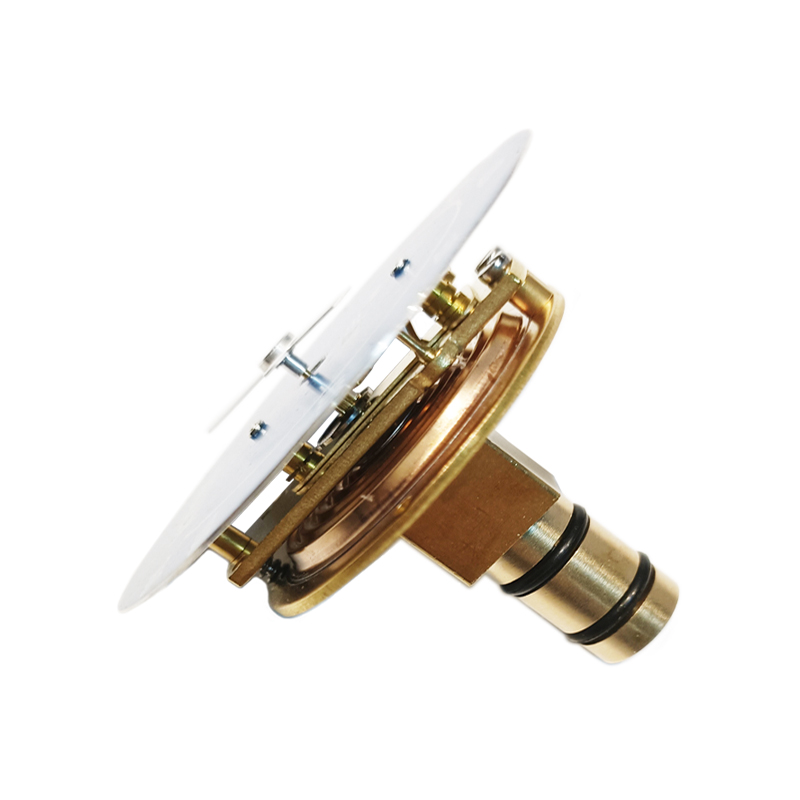
Oct . 30, 2024 13:42 Back to list
differential pressure gauges product
Understanding Differential Pressure Gauges A Key Tool in Fluid Measurement
Differential pressure gauges are essential instruments used in various industries for measuring the pressure difference between two points within a system. These gauges play a crucial role in monitoring the performance of equipment, ensuring efficient operation, and maintaining safety standards across numerous applications, including water treatment, oil and gas, pharmaceuticals, and HVAC systems.
At its core, a differential pressure gauge functions by comparing the pressure at two points, typically across valves, filters, or heat exchangers. The difference in pressure is indicative of the flow rate, fluid density, and system performance. This capability makes them invaluable in maintaining system integrity and performance.
One primary application of differential pressure gauges is in the filtration process. As filters capture particles from fluids, they gradually become clogged. A differential pressure gauge installed before and after the filter can provide real-time readings of the pressure difference. An increase in differential pressure indicates that the filter is becoming blocked and may need cleaning or replacing. This proactive monitoring helps prevent unplanned downtime and ensures the continuous flow of essential processes.
In HVAC systems, differential pressure gauges are used to monitor air filters and ductwork. By measuring the pressure drop across air filters, these gauges ensure optimal airflow and energy efficiency. A significant increase in the differential pressure can signal that the filters are dirty, prompting maintenance before air quality and system performance are compromised.
differential pressure gauges product

When it comes to process control, differential pressure gauges serve as critical indicators of fluid level in tanks and vessels. By measuring the pressure difference between the bottom and top of a tank, these gauges can help determine the liquid level without direct contact with the fluid. This remote monitoring is vital in applications involving corrosive or hazardous materials, enhancing safety.
Moreover, differential pressure gauges are indispensable in the oil and gas industry, where they monitor pressure changes in pipelines. By ensuring that the differential pressure remains within specified limits, operators can detect leaks or blockages early, mitigating the risk of spills and environmental hazards.
The design of differential pressure gauges can vary, including digital, analog, and manometer types, each suited for different applications. Digital gauges offer enhanced accuracy and features, such as data logging and remote monitoring capabilities, while analog gauges provide simplicity and ease of use.
In conclusion, differential pressure gauges are a critical component in various industries, facilitating efficient operations and safe working conditions. As technology advances, the evolution of these gauges continues, enhancing their accuracy, reliability, and user-friendliness. For companies aiming to optimize their processes and maintain high safety standards, investing in high-quality differential pressure gauges is a necessary step toward achieving operational excellence. Understanding and implementing this technology can lead to significant long-term benefits, ensuring that systems run smoothly and efficiently.
-
High-Precision Mass Diaphragm Pressure Gauge - Reliable & Durable Solutions
NewsJun.10,2025
-
Explain Diaphragm Pressure Gauge Expert Guide, Top Manufacturers & Quotes
NewsJun.10,2025
-
Affordable Differential Pressure Gauge Prices in China Top Manufacturers
NewsJun.10,2025
-
Reliable Water Fire Extinguisher Pressure Gauges for Safety
NewsJun.10,2025
-
Durable Diaphragm Protection Pressure Gauges Get Quote
NewsJun.09,2025
-
WIKA Differential Pressure Gauge with Switch Reliable Monitoring & Control
NewsJun.09,2025
